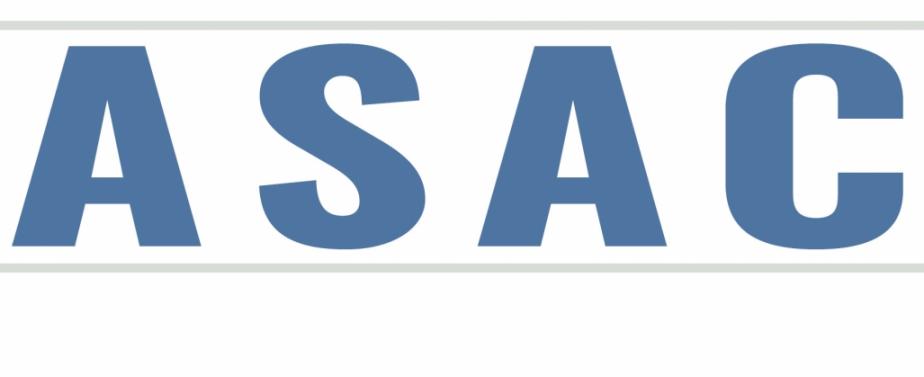Helping Prepare the Next Generation
03/11/2021
As consultants we want to be certain to help the next generation of our clients develop into great owners and managers. A part of that process is helping them manage through disruptions and setbacks that are common in an agricultural business. Here are some areas where we might provide unique insights during our interactions with them, ensuring that our relationship with them lasts into the next generation.
Teach Them to Focus on What Can be Controlled
Each crisis is distinctive in its effect on a business, but there are consistencies in how they need to be addressed. First, we need to identify what we can control. Identifying what we can control helps us stay focused, gives our people a sense of direction, and allows us to maximize our efforts in those areas.
Next, get your bearings. This means that we need to know where we stand in a variety of areas. What resources do we have available? What do we need that we don’t have? What do our people and their families need? What are our highest priorities? We must know the answers to these questions to guide our actions in the immediate stages of a crisis or disruption.
Teach Them How to Plan During Uncertainty
Your attitude and mindset as a leader during a crisis are key to your success. There should be an Apollo 13 attitude of, “Houston, we have a problem…” with a goal of, “Whatever it takes, we’re going to get our guys home…” You need that level of focus and determination.
Develop key goals for your highest priorities. State them clearly and specifically. Keep in mind the sniper’s motto, “Aim small… miss small.” This involves addressing some key questions. What is the most important part of our business? How do we protect it? What are the biggest threats to it that we can control or mitigate?
Facts are your friends in a crisis. Don’t guess unless you absolutely must, and remember which decisions were based on those guesses so you can update them with facts as they become available. Use the best source you can find for information.
Teach Them How to Gain Alignment with Their Plan
You can’t do it alone. Everyone needs to be fully engaged and aligned with your strategy or you risk missing your targets. You already know who you can count on. Involve them in your decision-making process and don’t assume you have all the answers. With all the unknowns and uncertainty, no one can be expected to carry the full load of trying to get every decision exactly right.
Remember, you’re going to be making lots of decisions as new information comes in, and you may have to change direction in a heartbeat. Give the next generation this experience so they are prepared for a similar situation on their watch.
Your success in a crisis is based more on your ability to adapt to the developing conditions, rather than having a perfect plan at the onset of the problem.
Teach Them How to Execute the Plan with Clarity and Passion
It is always true that the things leaders say carry tremendous weight. This is even more valid in a crisis. You are the main person that they look to for answers, and they also look to you for emotional guidance. Keep a level head during a crisis and model emotionally mature behaviors in your responses, instructions and leadership. Be an encourager and their biggest cheerleader. Remind them of their personal contributions to these efforts and build their self-confidence along with their competence.
Maintaining everyone’s behavioral health is essential. Companies, families and organizations that persist through a crisis are much stronger, healthier and wiser as a result. Remember the lessons learned and make them a part of your family’s enduring legacy.
These are a few areas where we can influence the development of the next generation. What are some of the strategies you do to ensure your services will be valued into the next generation of ownership?
Don Tyler
Tyler & Associates
These opinions and commentary are Don Tyler’s own. They are not necessarily those of ASAC or its members.
As consultants we want to be certain to help the next generation of our clients develop into great owners and managers. A part of that process is helping them manage through disruptions and setbacks that are common in an agricultural business. Here are some areas where we might provide unique insights during our interactions with them, ensuring that our relationship with them lasts into the next generation.
Teach Them to Focus on What Can be Controlled
Each crisis is distinctive in its effect on a business, but there are consistencies in how they need to be addressed. First, we need to identify what we can control. Identifying what we can control helps us stay focused, gives our people a sense of direction, and allows us to maximize our efforts in those areas.
Next, get your bearings. This means that we need to know where we stand in a variety of areas. What resources do we have available? What do we need that we don’t have? What do our people and their families need? What are our highest priorities? We must know the answers to these questions to guide our actions in the immediate stages of a crisis or disruption.
Teach Them How to Plan During Uncertainty
Your attitude and mindset as a leader during a crisis are key to your success. There should be an Apollo 13 attitude of, “Houston, we have a problem…” with a goal of, “Whatever it takes, we’re going to get our guys home…” You need that level of focus and determination.
Develop key goals for your highest priorities. State them clearly and specifically. Keep in mind the sniper’s motto, “Aim small… miss small.” This involves addressing some key questions. What is the most important part of our business? How do we protect it? What are the biggest threats to it that we can control or mitigate?
Facts are your friends in a crisis. Don’t guess unless you absolutely must, and remember which decisions were based on those guesses so you can update them with facts as they become available. Use the best source you can find for information.
Teach Them How to Gain Alignment with Their Plan
You can’t do it alone. Everyone needs to be fully engaged and aligned with your strategy or you risk missing your targets. You already know who you can count on. Involve them in your decision-making process and don’t assume you have all the answers. With all the unknowns and uncertainty, no one can be expected to carry the full load of trying to get every decision exactly right.
Remember, you’re going to be making lots of decisions as new information comes in, and you may have to change direction in a heartbeat. Give the next generation this experience so they are prepared for a similar situation on their watch.
Your success in a crisis is based more on your ability to adapt to the developing conditions, rather than having a perfect plan at the onset of the problem.
Teach Them How to Execute the Plan with Clarity and Passion
It is always true that the things leaders say carry tremendous weight. This is even more valid in a crisis. You are the main person that they look to for answers, and they also look to you for emotional guidance. Keep a level head during a crisis and model emotionally mature behaviors in your responses, instructions and leadership. Be an encourager and their biggest cheerleader. Remind them of their personal contributions to these efforts and build their self-confidence along with their competence.
Maintaining everyone’s behavioral health is essential. Companies, families and organizations that persist through a crisis are much stronger, healthier and wiser as a result. Remember the lessons learned and make them a part of your family’s enduring legacy.
These are a few areas where we can influence the development of the next generation. What are some of the strategies you do to ensure your services will be valued into the next generation of ownership?
Don Tyler
Tyler & Associates
These opinions and commentary are Don Tyler’s own. They are not necessarily those of ASAC or its members.
Post a new comment







